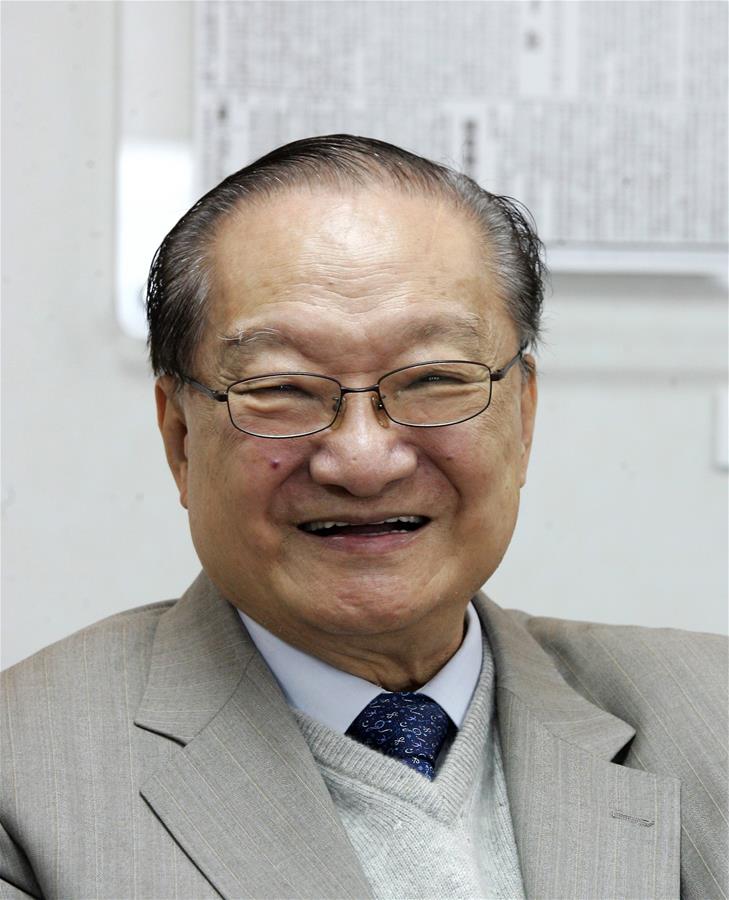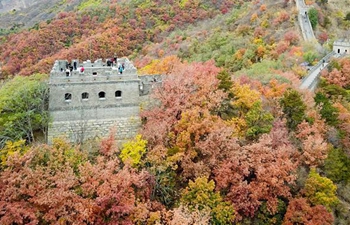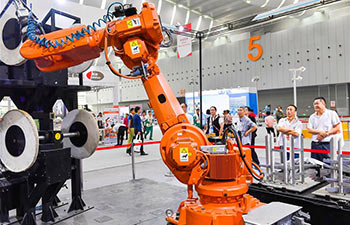
This is a file photo of Jin Yong. Famous Chinese martial arts novelist Louis Cha Leung-yung, more widely known by his pen name Jin Yong, died at 94 at a hospital in Hong Kong on Tuesday. Cha created many widespread martial arts novels between 1955 and 1972. Cha, who also co-founded the Hong Kong daily newspaper Ming Pao, has been regarded as one of the greatest and most popular martial arts writers. (Xinhua)
HONG KONG, Oct. 30 (Xinhua) -- Famous Chinese martial arts novelist Louis Cha Leung-yung, more widely known by his pen name Jin Yong, died at 94 at a hospital in Hong Kong on Tuesday.
Sources close to Cha confirmed the death to Xinhua.
Cha was born on March 10, 1924, in Haining in Zhejiang Province and moved to Hong Kong in the 1940s.
In 1955, he published his first martial arts novel The Book and the Sword, in New Evening Post, under the pen name Jin Yong coincidentally.
The novel was an instant success, and he went on to create 14 extremely popular martial arts novels, ending with The Deer and the Cauldron in 1972.
His martial arts novels have inspired production of movies, TV series, radio dramas, stage dramas, video games and various cultural and creative products, deeply influencing the development of popular culture in China over the past decades.
Cha's martial arts and chivalry stories have widespread followers in Chinese-speaking regions and communities, and have been translated into Korean, English, Japanese, French, Vietnamese, Indonesian and several other languages.
A distinguished literary writer aside, Cha was also a prominent figure in the press, social politics and history study.
He co-founded the Hong Kong daily newspaper Ming Pao in 1959. He then wrote editorials and did translation, essays and reviews on films and dramas for the newspaper in about two decades.
In 2000, Cha received the Grand Bauhinia Medal, the highest award under the Hong Kong Special Administrative Region (HKSAR) honors and awards system, to recognize his life-long and highly significant contribution to the well-being of Hong Kong.
HKSAR Chief Executive Carrie Lam expressed deep sorrow over the passing of Cha.
A learned man and an acclaimed writer of martial arts novels, Cha's works inherited the tradition of Chinese classics with the integration of history and culture, and are very popular among the Chinese in various parts of the world, she said.
She was grieved to learn of Cha's death. "On behalf of the HKSAR government, I would like to extend my deepest condolences to his family," she said.
Wang Zhimin, director of the Liaison Office of the Central People's Government in the HKSAR, sent a message of condolences to Cha's family.
Hailing Cha as a famous writer and an outstanding newsman, Wang said Cha inherited the essence of classical martial arts novels and created a new genre of martial arts and chivalry novels.
His works, with devotion to family and nation, have influenced the Chinese at home and abroad in a profound way, he said.
Poon Yiu-Ming knew Cha for the first time in 1991 when he was handpicked by Cha as the chief editor of Ming Pao Monthly, a publication that covers academic and cultural topics.
He holds great respect and gratitude towards Cha. The last time he saw Cha was three years ago when he visited him at home. He was glad to see that Cha was healthy, but had difficulties in fluent expression.
Poon was impressed by Cha's diligence and his skillful mastery of languages including English and French.
Cha often read and bought books at airports during business trips and his offices and home are full of books, he said.
Cha was successful in press, writing and business, Poon said, with his achievements never been approached before and will never be approached in the future.
An asteroid was named after Jin Yong in 2001.
A permanent exhibition of Jin Yong Gallery in the Hong Kong Heritage Museum was set up last year to showcase the creation process behind his martial arts novels and the impact the novels have had on Hong Kong's popular culture.















